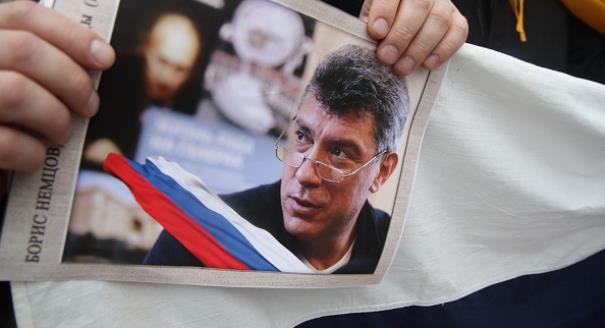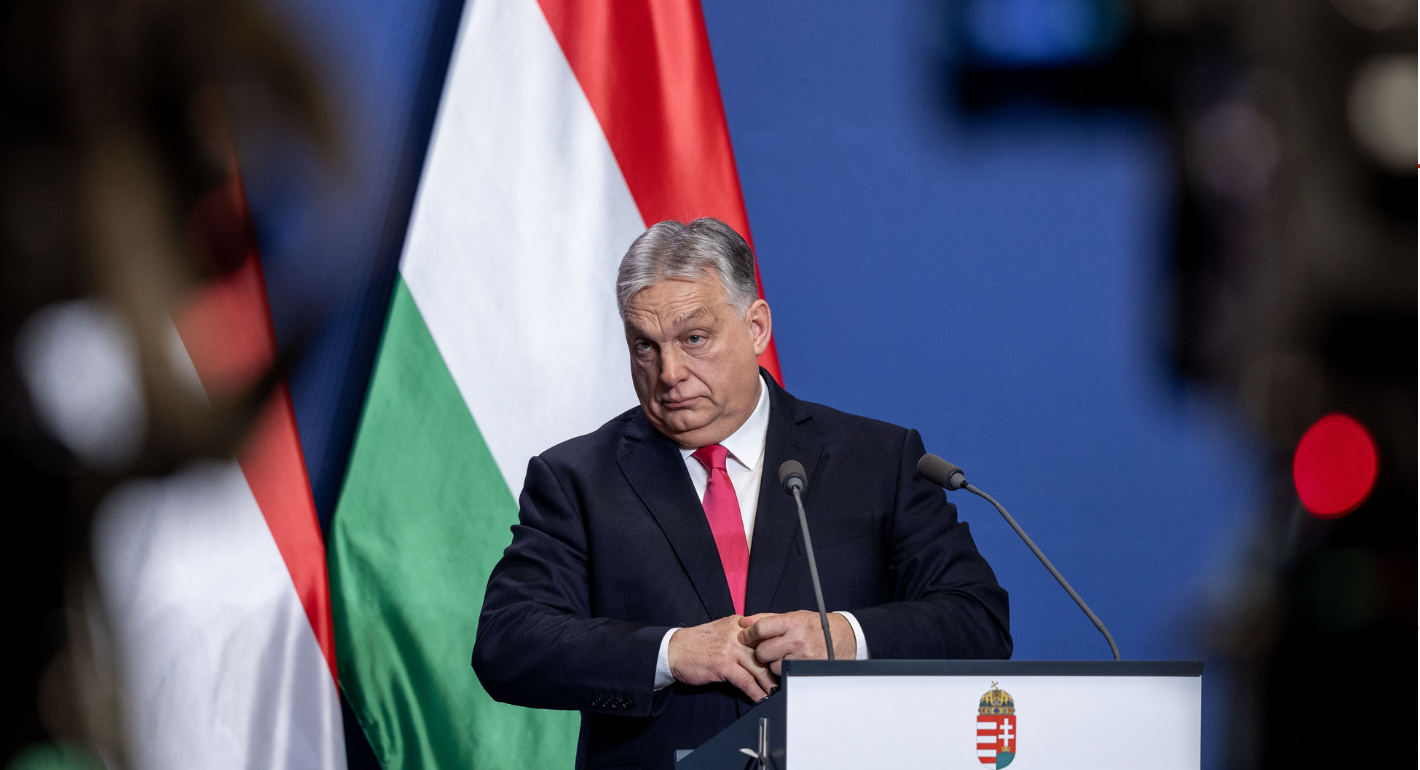Every week, a selection of leading experts answer a new question from Judy Dempsey on the foreign and security policy challenges shaping Europe’s role in the world.
Alexander BaunovSenior associate and editor in chief of Carnegie.ru at the Carnegie Moscow Center
The killing of Boris Nemtsov on February 27 marks a degradation of Russian authoritarianism. In some authoritarian states, the political opposition is deprived of power, influence, and participation in political life through peaceful, nonviolent means. In others, the killing of opposition politicians is just a regular occurrence. Before Nemtsov’s murder, President Vladimir Putin’s Russia belonged to the first type; afterward, the country made a tragic step toward the second.
#Nemtsov's killing marks a degradation of Russian authoritarianism.
Remember that Nemtsov was just strolling in the Moscow night after another round of criticizing Putin and the regime on the radio. Nobody really worried: for so many years, it had been OK to do so. Now, Russian opposition figures will undoubtedly walk in the city with a different mood. Regardless of who Nemtsov’s shooter was and whose orders he was carrying out, a country where a critic of the regime must fear being killed on the street rather than arrested at a political rally is a different place altogether.
And if the killing didn’t happen on the Kremlin’s orders, matters are no better. In some authoritarian regimes, the state strictly monopolizes its repressive mechanisms; in others, this monopoly is lost. Repressions spin out of control, and the repressive reins slip to the masses. This is happening now in Russia, where the authorities are trying to consolidate society around opposing an enemy, and some are starting to take this signal too literally—as a call for action.
Тhe murder of Boris Nemtsov is a landmark step along the path Russia has been following in recent years—from a pragmatic dictatorship in the time of economic growth toward an ideology-driven dictatorship of self-preservation.
Fraser CameronDirector of the EU-Asia Center
Unfortunately not. Boris Nemtsov, a Russian opposition leader who was killed on February 27, was largely unknown in his country. But even his murder, along with previous assassinations such as that of human rights activist Anna Politkovskaya in 2006, is unlikely to shake Russians out of their Putin-induced torpor.
Vladimir #Putin is unchallenged but not untouchable.
Russia’s deteriorating economy is likely to be a bigger game changer, albeit one that takes time to have an effect. The mafioso state that Vladimir Putin has constructed will probably survive the Russian president. He is unchallenged but not untouchable.
What this means for the West is a long game of strategic patience. The Europeans and Americans have to deal with the Russia that exists—but equally, they cannot give up on their principles. Ultimately, everyone will be secure in Europe with a democratic Russia that enjoys the rule of law and a close relationship with the EU. I just have doubts I will see it in my lifetime.
Andrei KolesnikovSenior associate and chair of the Russian Domestic Politics and Political Institutions Program at the Carnegie Moscow Center
Boris Nemtsov’s murder will not change Russia in any way—just as the killing of human rights activist Anna Politkovskaya in 2006 has had no effect on the country. Both the regime and Russia’s mass consciousness will continue their gradual drift toward statism, nationalism, and isolationism.
#Nemtsov's murder will not change #Russia in any way.
On the emotional and ideological levels, this crime will cause an even greater split within Russian society, although an enormous gulf has already been separating zealous regime supporters and the backers of democratic values since the 2011–2012 anticorruption protests. Nemtsov’s killing simply brought this process to its logical conclusion: if there is a gun in the room, it is certain to go off; if the authorities actively incite public opinion against the fifth column, there will be people whose aggressive words will translate into aggressive actions.
One could speculate that the Russian regime might now intensify its political repression, using Nemtsov’s killing as an excuse. But the repression is already underway, regardless of any external events: shortly before Nemtsov’s death, one more individual was charged in the Bolotnaya Square case of alleged mass riot, although it has been almost two years since the supposed unrest. The repressive machine just won’t stop.
Can Nemtsov’s murder consolidate Russia’s opposition? Actually, the opposition is more of an emotional than a political concept at this time. The personalistic power regime doesn’t offer liberals and democrats any representation in the parliament and brutally suppresses any street opposition protests. The potentially successful leader Alexei Navalny is blocked at every turn and discredited with trumped-up criminal cases.
Nemtsov’s murder is yet another step in Russia’s mental and political degradation. That is the only change it will have.
Stefan MeisterHead of the Program on Eastern Europe, Russia, and Central Asia at the Robert Bosch Center of the German Council on Foreign Relations
Unfortunately not in a positive way. In the end, only a minority of Russians support the demonstrations in the streets of Moscow on March 1 by those wanting to pay their last respects to Boris Nemtsov.
Nemtsov was one of the few visible Russian opposition politicians who openly criticized the regime and the negative developments in Russia in recent years. He collected information about corruption as well as Russia’s participation in the war in eastern Ukraine. Several times, he passed a redline but seemed immune to all attacks, psychological and physical.
#Nemtsov's killing shows that nobody is safe in #Russia.
That he has now been killed shows that nobody is safe anymore in Russia; anybody who criticizes the regime or who is out of line with the official discourse can lose their life. The result will be more fear and less civil courage. Nemtsov’s murder will weaken the opposition even further and silence any critical comment on current developments in Russia.
The stigmatization of all dissenting voices and the aggressive propaganda against anybody who has a more nuanced and less brainwashed view of Russia today has created an atmosphere of fear, aggression, and intolerance. That will strengthen the nationalists and xenophobes and will increase the paranoia of the regime.
Gianni RiottaMember of the Council on Foreign Relations
Learning about the violent death of Boris Nemtsov on February 27, I felt the same bone-chilling angst I felt in 1978 on learning that former Italian prime minister Aldo Moro had been kidnapped by the Red Brigades paramilitary group.
Intelligence analysts and conspiracy buffs will ruminate about the Kremlin’s involvement in Nemtsov’s assassination: Did Russian President Vladimir Putin know about the murder beforehand? Did he give the killers a green or a yellow light? Will there be a repeat of the Sergey Kirov case in 1934, when Joseph Stalin’s brilliant rival was killed in Leningrad and the regime unleashed a brutal repression?
The reality is that Putin has a solid, stern grip on power in Moscow. He enjoys an 86 percent approval rating, ruling with steely propaganda and a Big Brother–like control of the media. He performed a shrewd political somersault to turn international sanctions into feverish nationalism. Whether the killers on the Moskva River bridge were rogue security agents or freelance death squad goons, the political equation does not change.
#Putin brews a climate of terror against the dissidents and savors the results.
Putin brews this climate of terror against the dissidents and savors the results. Lame-duck, distracted, legacy-obsessed U.S. President Barack Obama spars with Israeli Prime Minister Benjamin Netanyahu but does not have a strategy vis-à-vis Putin. An oft-quoted diplomatic source confirms that “Obama sees the world in win-win terms, Putin sees it in zero-sum terms.”
European ambassadors left flowers on the bridge where Nemtsov was killed, and Italian Prime Minister Matteo Renzi, the first foreign leader to visit Moscow after the attack, promises to do so too. Bouquets are not, sadly, sound strategies. According to a former German ambassador, German Chancellor Angela Merkel has come to an unhappy conclusion: “Maybe [Putin] is not interested in restoring order. . . . Maybe his advisers are telling him that Russia is better off in a world without order.”
So no, Russia will not change. Anton Chekhov wrote that “Moscow is a city that will have to suffer a great deal more.” He was right.
James SherrAssociate fellow in the Russia and Eurasia Program at Chatham House
Boris Nemtsov’s killing will not change Russia for the better.
#Nemtsov's murderers left two mysteries in their wake.
His murderers left two mysteries in their wake. The first is their choice of crime scene. Had Russian President Vladimir Putin commissioned the deed, it is most unlikely that he would have chosen a location—a stone’s throw from the Kremlin—so ostentatiously linked to himself. But it is even more unlikely that individuals outside the structures of power could have mounted such an attack and simply vanished.
The second mystery is the target himself. Russia’s liberal opposition might be intrepid, but it has a greater following abroad than at home. A more likely vehicle for destabilizing Russian society would have been Alexei Navalny, an anticorruption campaigner who draws support from both the liberal and the national-chauvinist camps.
Yet Russia’s nationalists are not just an opposition. They are embedded in the state and its myriad special services, including military counterintelligence, which has no reason to welcome the revelations about the war in Ukraine that Nemtsov was planning to expose. To the Federal Security Service and much of Russia’s political class, the liberals are not a harmless group of luminaries. Rather, they are the designated beneficiaries of Western-sponsored regime change whose fortunes might soar if ten years of Russian prosperity turn to dust.
Even if Putin has no culpability whatever, he is the last person who can afford an open investigation into the secretive networks that have become synonymous with his own regime. Expect instead an indictment of forces abroad and harsher measures at home for society’s ostensible protection.










